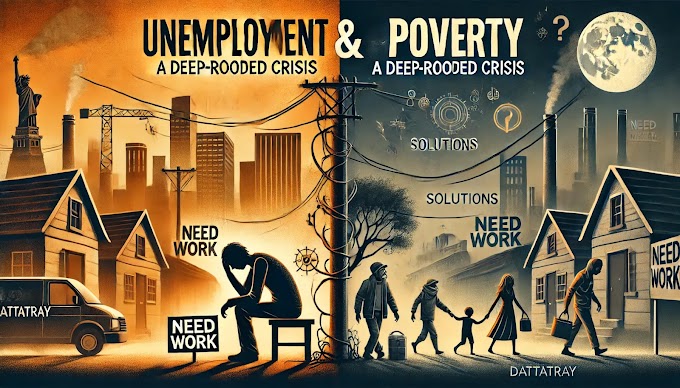The Impact of Globalization on Developing Economies: Challenges and Opportunities
Introduction:
Globalization, with its interconnectedness and increased economic integration, has been one of the defining phenomena of the modern era. While it has brought numerous benefits to advanced economies, the impact of globalization on developing economies has been both complex and multifaceted. This article explores how globalization has affected developing economies, examining its challenges and opportunities and the potential paths for achieving sustainable and inclusive growth.
The Advantages of Globalization for Developing Economies:
a) Access to Global Markets:
Globalization has opened up new opportunities for developing economies to participate in the global marketplace. Increased trade and foreign investment have provided access to larger consumer bases and diversified revenue streams.
b) Technology Transfer:
As globalization has facilitated the flow of information and technology, developing economies have gained access to advanced technologies and know-how. This has fostered innovation, improved production processes, and enhanced overall productivity.
c) Foreign Direct Investment (FDI):
Foreign investment brings not only capital but also managerial expertise and access to international networks. FDI can stimulate economic growth, create jobs, and promote technology transfer in developing economies.
Challenges Faced by Developing Economies:
a) Unequal Distribution of Benefits:
The benefits of globalization have not been evenly distributed across developing economies. Often, the gains have accrued to certain sectors or regions, while others have been left behind, exacerbating income inequality.
b) Vulnerability to Global Shocks:
Developing economies, particularly those heavily dependent on exports, can be vulnerable to global economic fluctuations. Economic crises in advanced economies can lead to reduced demand for exports, affecting growth and stability in developing countries.
c) Currency Volatility:
Globalization exposes developing economies to currency fluctuations, which can impact export competitiveness and create uncertainties for businesses and investors.
Navigating Globalization for Inclusive Growth:
a) Diversification of Economies:
To mitigate the risks associated with heavy reliance on a few sectors or export partners, developing economies must focus on diversifying their economic base. By investing in a range of industries, they can reduce exposure to external shocks and create more resilient economies.
b) Investment in Education and Human Capital:
A well-educated and skilled workforce is crucial for developing economies to seize opportunities presented by globalization. Investing in education, vocational training, and skill development programs can enhance the employability of the workforce and foster innovation.
c) Strengthening Institutions:
Sound and transparent institutions are essential for attracting foreign investment, ensuring property rights, and promoting the rule of law. Developing economies must prioritize institutional reforms to create a favorable business environment and foster investor confidence.
Embracing Sustainable Globalization:
a) Environmental Considerations:
As developing economies participate in global trade and investment, they must also prioritize sustainable practices. Embracing environmentally friendly policies and adopting green technologies can mitigate the negative impact of economic growth on the planet.
b) Social Inclusion:
Globalization should not leave marginalized populations behind. Developing economies must strive for social inclusion, providing equal access to economic opportunities, healthcare, and education for all citizens.
Conclusion:
Globalization has provided developing economies with significant opportunities for growth and development. However, it also presents challenges that require careful navigation and proactive policy measures. By focusing on diversification, investing in human capital, strengthening institutions, and embracing sustainable practices, developing economies can harness the potential of globalization to achieve inclusive and sustainable growth.
Globalization, when managed effectively, can be a powerful force for reducing poverty, improving living standards, and fostering innovation in developing economies. With a commitment to social inclusivity and environmental responsibility, these countries can steer globalization towards a more equitable and prosperous future for all. Policymakers, businesses, and civil society must collaborate to strike a balance that ensures globalization works for the collective benefit of humanity while respecting the unique needs and characteristics of individual economies.
Thanks For Reading ( Have A Great Week :)
. . .
"Just focus on yourself and your goals" - Thought
.png)







.png)

.png)

0 Comments